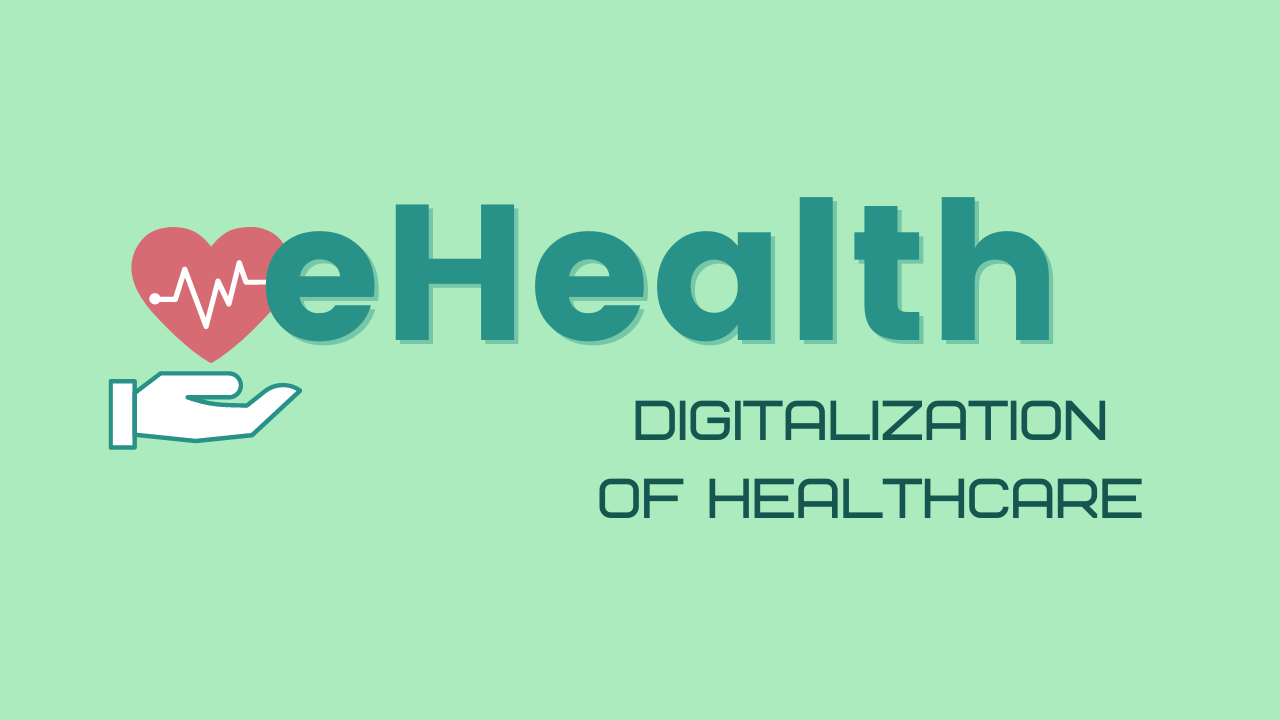eHealth
eHealth
Blog Article
eHealth
Overview
eHealth, also known as electronic overall health or healthcare know-how, refers to the usage of electronic conversation and knowledge engineering in the healthcare field. It encompasses an array of systems and applications aimed toward improving upon the effectiveness, performance, and high quality of Health care supply.
Objectives of eHealth
The principle targets of eHealth may be summarized as follows:
Enhanced Usage of Health care: By leveraging digital technologies for instance telemedicine and distant patient monitoring, eHealth aims to boost usage of Health care solutions for individuals residing in distant spots or with restricted mobility.
Improved Good quality of Treatment: Through resources like electronic overall health data (EHRs) and scientific conclusion assistance techniques (CDSS), eHealth seeks to reinforce the caliber of treatment by facilitating precise and well timed facts Trade between Health care gurus.
Patient Empowerment: By providing individuals with access to their health-related information, customized wellness apps, and on-line educational sources, eHealth empowers people to consider an active role in managing their very own well being.
Price Efficiency: Employing electronic platforms can assist minimize administrative fees connected with paper-based systems though enabling successful coordination amongst distinct stakeholders within the Health care ecosystem.
Essential Programs of eHealth
Several vital apps contribute to achieving the aims outlined previously mentioned:
Digital Wellbeing Information (EHRs):
EHRs are electronic versions of patients' professional medical information that can be conveniently accessed by approved Health care companies linked to a individual's care. They supply an extensive look at of the affected individual's health care history, lab effects, medicines prescribed, allergy symptoms, along with other applicable medical details.
Telemedicine:
Telemedicine requires offering healthcare remotely by way of online video conferencing or cellphone phone calls. It enables Medical professionals to refer to with individuals who are unable to physically pay a visit to hospitals or clinics as a consequence of geographical constraints or mobility concerns.
Cellular Health and fitness (mHealth) Apps:
mHealth apps are smartphone apps that deliver numerous healthcare expert services, such as tracking crucial signals, reminding patients to get prescription drugs, furnishing access to wellness education and learning products, and facilitating interaction with healthcare providers.
Remote Affected person Monitoring (RPM):
RPM permits healthcare pros to watch a client's critical signals as well as other well being parameters remotely making use of wearable units or sensors. This permits early detection of health problems and timely interventions.
Wellness Details Exchange (HIE):
HIE entails the secure sharing of patient data throughout distinctive Health care businesses, guaranteeing seamless coordination and continuity of care in between providers in various configurations.
Medical Selection Help Methods (CDSS):
CDSS leverage synthetic intelligence algorithms to investigate health care knowledge and help healthcare gurus in building evidence-based conclusions pertaining to prognosis, therapy designs, drug interactions, plus much more.
Overall health Wearables:
They're wearable devices like Conditioning trackers or smartwatches which will gather physiological data click here on someone's workout routines, coronary heart charge patterns, snooze high quality, plus more.
Advantages of eHealth
The adoption of eHealth offers many Advantages for both of those folks and the general healthcare process:
Improved Effectiveness: eHealth streamlines administrative tasks by minimizing paperwork and enabling the Digital exchange of knowledge among stakeholders involved with affected individual care.
Improved Interaction: Digital wellbeing tools facilitate helpful communication amongst people and their healthcare suppliers while also selling collaboration among the various professionals involved with a patient's remedy system.
Usage of Specialized Care: Telemedicine permits clients residing in distant areas or underserved communities to consult with specialist Medical professionals who is probably not bodily existing close by.
Timely Interventions: Via remote monitoring techniques or cellular applications that present alerts or reminders for medication adherence or abide by-up appointments, eHealth helps stop problems by facilitating early interventions.
Improved Individual Outcomes: By delivering easy use of clinical information and facts online together with personalized well being advice, eHealth empowers individuals to actively engage in their very own healthcare and manage Serious disorders correctly.
Worries and Fears
When the implementation of eHealth includes several Rewards, In addition, it presents worries and problems that must be tackled:
Privacy and Protection: Safeguarding affected person data from unauthorized obtain is a major concern during the electronic well being landscape. Strong protection measures, compliant with applicable privacy regulations, need to be applied to ensure facts confidentiality.
Interoperability: Diverse Health care programs and applications may well not usually seamlessly talk to each other as a consequence of insufficient interoperability standards. Guaranteeing efficient exchange of data across platforms is important for extensive affected individual care.
Electronic Divide: Not everyone has equal usage of digital technologies or possesses the mandatory digital literacy expertise demanded for making use of eHealth applications successfully. Bridging the digital divide will become essential to guarantee equitable usage of Health care providers.
Regulatory Compliance: The dynamic character of technology usually surpasses current regulatory frameworks. To totally leverage the key benefits of eHealth when safeguarding affected individual rights, laws need to have to maintain rate with technological advancements without having stifling innovation.
Conclusion
eHealth plays a pivotal position in modernizing Health care supply by harnessing technology for improved access, high quality of care, affected person empowerment, and value effectiveness. The prevalent adoption of electronic communication resources, telemedicine companies, cellular overall health apps, remote monitoring methods, along with other progressive remedies contributes in direction of a more connected and affected person-centered approach to Health care provision. Having said that, addressing worries connected to privateness defense, interoperability expectations compliance bridging inequality gaps in Net accessibility are crucial measures toward achieving the entire probable of eHealth.
